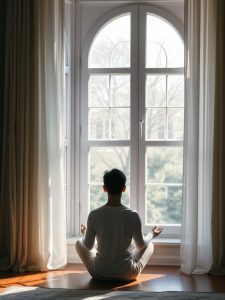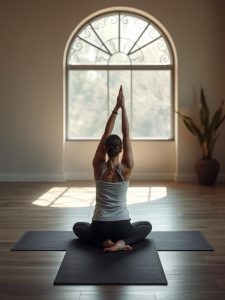In today’s fast-paced world, many people wear “being busy” as a badge of honor. We rush from task to task, juggling work, family, and social responsibilities, often leaving little time for ourselves. Yet, relaxation is not a luxury—it’s a necessity for a healthy, fulfilling life.
Taking intentional time to relax isn’t about being lazy or unproductive. It’s about recharging your body, clearing your mind, and boosting your resilience. True well-being isn’t just about working harder; it’s about working smarter—and relaxation is the missing ingredient many overlook.
In this article, we’ll explore why relaxation is vital for your mental health, physical well-being, and productivity. By the end, you’ll understand why relaxation isn’t something you should “fit in if you have time”—it’s something you must prioritize every day.
1. The Mental Health Benefits of Relaxation

Stress Relief
Chronic stress has become a silent epidemic. When we’re constantly on the go, our bodies release stress hormones like cortisol and adrenaline, keeping us in “fight or flight” mode. This not only makes us feel anxious and restless but also wears down our mental health.
Relaxation techniques—such as meditation, deep breathing, journaling, or even reading—signal to your nervous system that it’s safe to rest. This shift helps lower cortisol levels, bringing calm and balance back into your life.
Reduced Anxiety
When you allow yourself to relax, you give your brain space to process emotions and thoughts. This reduces racing thoughts, lowers feelings of overwhelm, and allows you to respond thoughtfully instead of react impulsively. Even short breaks during the day can reduce anxiety symptoms and improve overall emotional stability.
Mental Clarity & Focus
Have you ever noticed how new ideas often come to you in the shower or while on a walk? That’s because relaxation clears mental clutter. When your mind isn’t consumed with constant stress, it can think more clearly, creatively, and strategically. By making relaxation a daily ritual, you create mental space for problem-solving and better decision-making.
2. The Physical Health Benefits of Relaxation
Improved Sleep
Stress and overstimulation are two of the biggest culprits behind poor sleep. Relaxation practices before bedtime—like stretching, reading, or guided meditation—help the body transition into a restful state. Quality sleep improves mood, strengthens immunity, and restores energy levels.
Muscle Relaxation
Tension in the mind often translates into tension in the body. Relaxation exercises like progressive muscle relaxation or gentle yoga can ease physical stiffness, reduce headaches, and relieve back or neck pain caused by stress.
Lower Blood Pressure & Heart Health
Chronic stress is linked to high blood pressure, cardiovascular disease, and other serious conditions. Regular relaxation reduces heart rate, lowers blood pressure, and promotes healthy circulation. This makes relaxation a vital part of preventative health care.
3. Relaxation as a Productivity Boost

Preventing Burnout
Many people mistakenly believe that working longer hours equals greater productivity. In reality, constant busyness leads to burnout—mental exhaustion that reduces your ability to perform effectively. Relaxation provides the balance needed to sustain high performance over the long term.
Creativity & Innovation
Relaxation isn’t wasted time—it’s fertile ground for creativity. Studies show that downtime allows your brain to enter a “default mode network,” which sparks connections between ideas and fosters innovation. Some of the world’s greatest breakthroughs were born during moments of calm reflection.
Efficiency & Energy
When you take regular breaks to relax, you return to your tasks refreshed and focused. This helps you complete tasks more efficiently and with fewer mistakes, saving time in the long run.
4. Practical Ways to Incorporate Relaxation into Daily Life
- Deep Breathing Exercises – Take five minutes to practice slow, deep breaths.
- Mindful Walking – Step outside and focus on your surroundings.
- Digital Detox – Switch off devices for 30 minutes each evening.
- Meditation or Yoga – Start small with 10 minutes a day.
- Creative Hobbies – Paint, write, garden, or do something that makes you lose track of time.
- Unplugged Evenings – Create a “relaxation ritual” before bed—dim lights, sip herbal tea, and read.
Remember: relaxation doesn’t need to be complicated. It’s about consistency, not perfection.

Conclusion
Relaxation isn’t an indulgence; it’s an essential pillar of well-being. By prioritizing relaxation, you’re caring for your mental health, strengthening your body, and boosting your productivity.
So next time you feel guilty about slowing down, remind yourself: relaxation isn’t time wasted—it’s an investment in a healthier, happier, and more successful you.
Start today. Breathe deeply, take a break, and give yourself permission to rest. Your mind, body, and future self will thank you.




